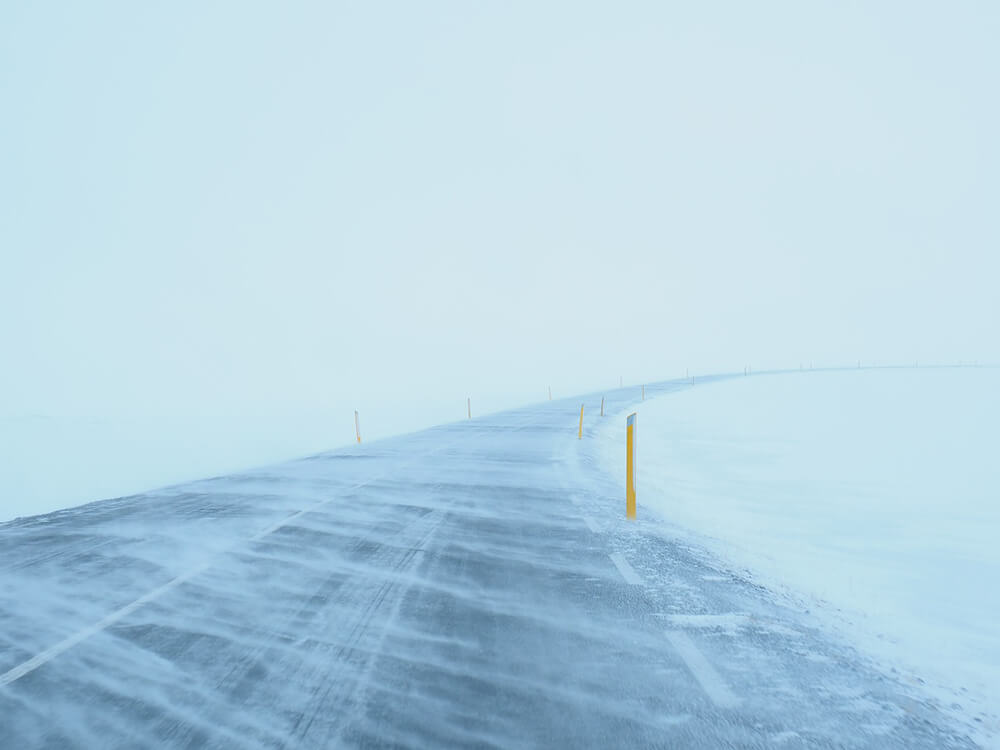Safety Considerations Drivers Should Consider During Inclement Weather
Winter and all the chills that come with it are quickly approaching. In Chicago winter brings plenty of snow that may or may not be cleared from the roads. When a serious storm arrives and you have somewhere you need to be, sometimes your only option is to drive through the snow.
Of course, snow isn’t the only bad weather that can affect the roads. Heavy rain, hailstorms, and strong winds can also make driving more difficult and dangerous. But the good news is that you don’t have to be unprepared to drive in those conditions. We’ve put together a list of safety considerations for you to keep in mind while driving in inclement weather:
Safety Measures to Take While Driving in Bad Weather
When it comes to bad weather, every scenario is unique and requires a different set of actions to take to keep you from getting into or causing a bad accident. In general, there are safety measures to take into consideration for any type of inclement weather. Here’s what to do if you find yourself on the road in severe weather conditions:
- Check the weather. Only drive through bad weather if it’s absolutely necessary. The National Weather Service states that a vehicle is one of the worst places to be in severe weather. If you can put off your trip until the storm passes, you should wait. If you have to drive, keep your radio tuned to the weather broadcasting station to stay informed about conditions.
- Drive slowly. When the roads are difficult to drive on, speeding makes everything worse. Speeding gives you less time to react and can cause you to slide on snow or hydroplane on wet roads. Speeding can also negatively affect other drivers who are being more cautious.
- Accelerate and brake slowly. Being harsh with the gas or brake pedal can make you slide uncontrollably in bad weather because your tires don’t have time to grip to the road. Keep the pressure even and gradual while accelerating or braking. If you need to slow down, first release the gas pedal and allow your vehicle to slow down on its own before applying the brakes. This can save you from overcorrecting and making the situation worse.
- Maintain your vehicle. Be sure to have good tires, have them filled properly, and keep your vehicle’s maintenance up to date – especially when you’re going to be driving in bad weather. Your tires and brakes are probably the most important parts of your car to keep in proper condition. You’ll also want to have good windshield wiper blades so that you’re always able to see through your windshield clearly.
- Keep emergency supplies in your car. Even though this is geared toward the worst-case scenario, it is better to be overprepared. Keep supplies in your car like a blanket, bottled water, car tool kit with jumper cables, a flashlight, shovel, ice scraper, and even some snacks that won’t go bad for some time, like granola bars. Even though it’s not necessary, you could also keep a portable phone charger in your car. That way, if your car dies and you’re stuck for a long time, you don’t have to worry about your phone dying and losing contact.
- Stay calm. Driving on roads affected by bad weather can be nerve-wracking and scary. It makes sense why a driver would feel tense. But the best thing you can do is stay as calm as possible. That way, you won’t make any rash decisions while driving and can react accordingly to the conditions.
Krzak Rundio Gorman, Injury Attorneys Has Your Back
Driving in bad weather often causes car accidents, both minor and major. After an accident caused by another driver, you could suffer damages to yourself, other passengers, and your car that need to be taken care of. At Krzak Rundio Gorman, Injury Attorneys, our attorneys are dedicated to looking at every part of your case so we can fully defend your rights. If you question your legal options after a collision that wasn’t your fault, contact our office today and we can discuss your potential claim.











